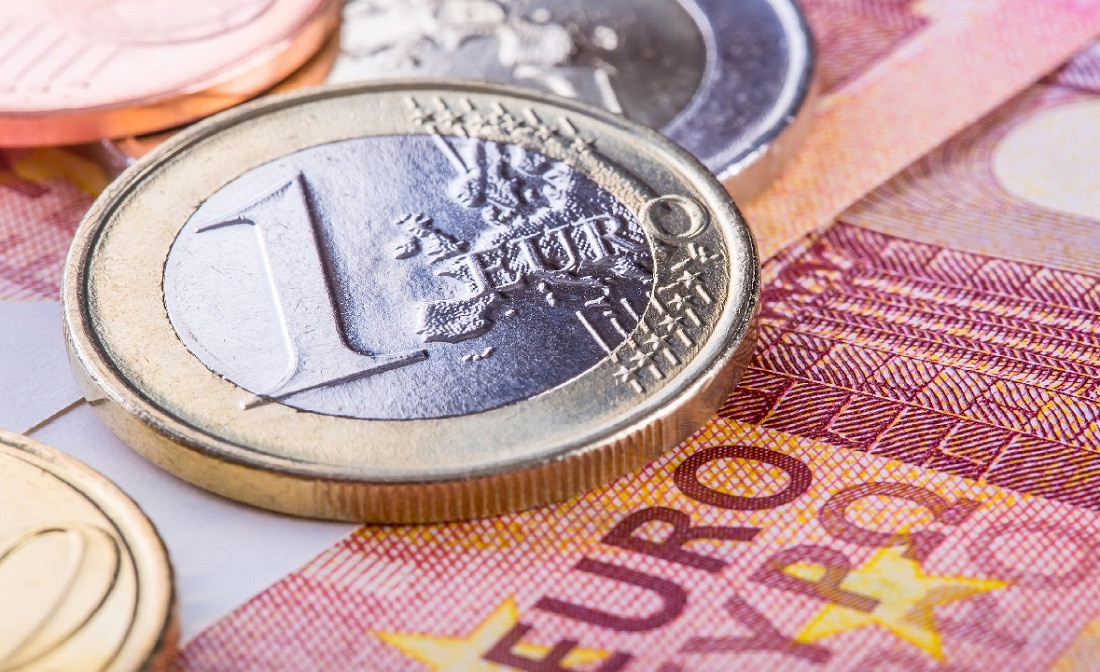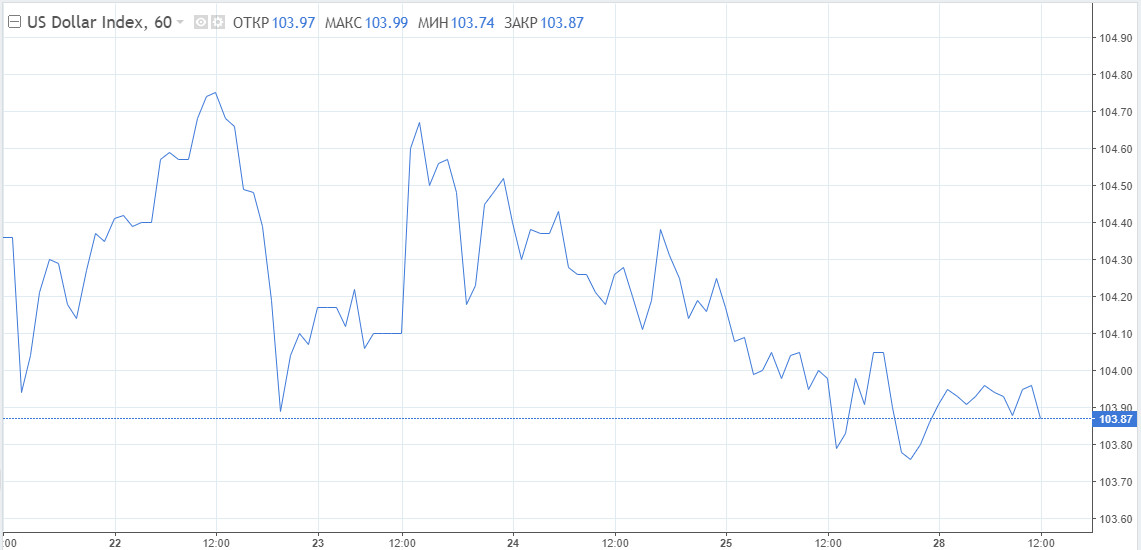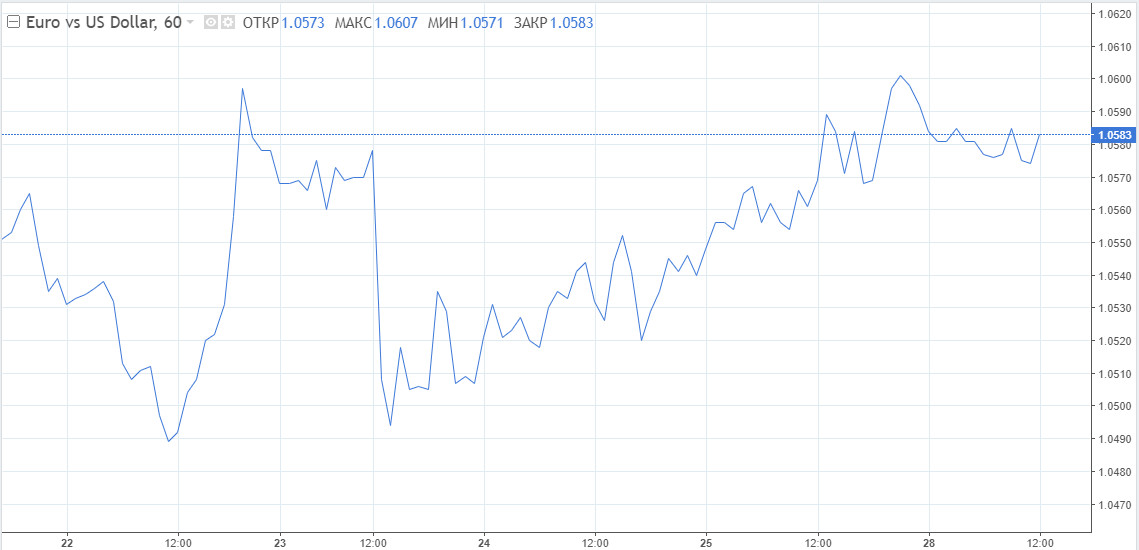
The euro has a difficult and stressful week ahead, it can either rise above 1.0600 or fall below 1.0400. Judging by the short-term current picture, the EUR/USD pair has regained bullish momentum, bulls are willing to be active in the market. The positive dynamics will continue if the bullish mood continues to dominate the markets, and the European Central Bank further fuels the momentum.
At the same time, it became known that EU members are going to ban the import of Russian gold. Moscow's reaction to such discussions may well occur, which will provoke an escalation of geopolitical tensions. Investors can again bypass risky assets, and in this case the euro will once again come under attack.
However, the single currency has plenty of reasons to get under pressure. The economic prospects of the euro bloc, apparently, are deteriorating. A series of macroeconomic data will be released this week, which can raise the volatility of the euro. The focus is on the ECB summit. ECB President Christine Lagarde made her opening remarks on Monday.
In the meantime, the EUR/USD pair is staying above the recently restored level of 1.0500, but mainly due to the dollar showing weakness. It will not be easy for the single currency to move to the value of 1.0600 and above without further retreat of the US currency.
The greenback seemed to be losing profits last week, and at the start of the new one, it also mostly went into negative territory. Dollar bulls felt uncertainty after Federal Reserve Chairman Jerome Powell repeated in Congress that it would be difficult for the central bank to reduce inflation without consequences for the labor market and the economy as a whole. Market players took this as a signal for a less hawkish position and began to revise expectations in the direction of lowering interest rates in the United States.
This week there will also be a good portion of data for America, the dollar may react with another rollback. GDP data will be released on Thursday, Powell will also speak. Investors will pay attention to statistics on personal income and spending of Americans, the Fed's key inflationary indicator - consumer spending price indices, and the ISM industrial business activity index.
Since the Fed constantly focuses on the fight against inflation, calling it the number one thing, the statistics on prices are of particular interest in the near term. The new figures could either raise or further lower expectations for a US interest rate hike.
The focus is also on the deterioration of macroeconomic forecasts. The IMF significantly lowered its expectations for GDP growth for the current year to 2.9% from 3.7%. The same indicator for 2023 has also been revised, now it is 1.7% compared to 2.3% previously. Even more conservative is the Fed's forecast of 1.7% economic growth over the next two years.
The dollar is not very happy about this, at the same time, analysts maintain a positive outlook on the US currency index. According to representatives of Societe Generale, the index has every reason to rise to 111.
Downtrend risk will intensify after a break down of 101, while the dollar is calm, trading near 104.
In the short term, a consolidation phase is possible around 101.30 and 106. A move above 106 will trigger a new dollar rally.

The euro is growing now, but impressive movements are not expected. At best, the course will run in the currently designated range in the coming summer months. By the end of the year, we can expect moderate growth, if, of course, the market begins to assess the beginning of the Fed's easing cycle at the end of 2023. In the meantime, the Fed continues to show a hawkish attitude, and it will be difficult for EUR/USD to take the 1.0625 mark and settle above it.
"The neckline at 1.0790-1.0810, which is also the low of March, is an important resistance. Until this line is crossed, the downtrend is expected to continue," Societe Generale analysts write.
Germany is adding pressure to the euro. The country is facing increased risks associated with reduced gas supplies from Russia. A specific energy shock caused by a sharp increase in natural gas prices may begin earlier than currently expected and will catalyze a new stage of EUR/USD decline.
In such a scenario, the theme of parity is activated again. Failure to defend the 1.0340 level will confirm continued decline. The next potential targets may be at the level of 1.0070-1.0000, according to Societe Generale.

The huge risk for the euro is that the economic hit associated with high energy prices and possible supply disruptions is beginning to be seen by the ECB as a medium-term source of deflation. This is also a reason for a slower or more cautious approach to normalizing monetary policy.
This is one of the scenarios that the market is likely to control in the first half of the week, when Lagarde will take part in the discussion at the ECB Forum on central banks. Market players will heed any hints about a possible adjustment of the measures that the bank intends to use to prevent the fall of bond markets in peripheral countries of Europe due to higher interest rates.
The ECB is developing a new scheme at an accelerated paceAt the same time, additional evidence that the ECB intends to contain inflation in the euro area by protecting the Eurobond market may increase the euro's appeal.
The turmoil in the market forced the central bank to speed up work on a new scheme for buying bonds in order to reduce yields. This puts it in a difficult position as it raises the cost of borrowing for the eurozone as a whole, while limiting borrowing for some of its weaker members.
To avoid this contradiction, the possibility of combining a new scheme of buying bonds with auctions, where banks can deposit cash with the central bank at a better interest rate than the usual deposit rate, Reuters wrote Tuesday, citing people familiar with the matter, is being considered.
A new scheme aimed at combating financial fragmentation among eurozone countries will be presented at the ECB meeting on 21 July.
Details are still being finalized, but loose conditions for beneficiary countries should be attached to them, such as the requirement to comply with the EC's economic advice.





















